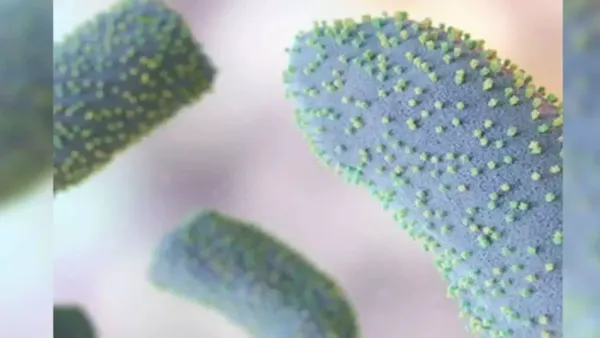
NEW DELHI New Delhi: The showerhead and toothbrush in your bathroom are filled with an extremely diverse collection of viruses – most of which have never been seen before, a study warned on Wednesday. A team of microbiologists from Northwestern University in the US Identified over 600 different viruses from samples collected from showerheads and toothbrushes. Surprisingly, no two samples were alike. The good news is that these viruses do not target people, the researchers said. They target bacteria. The microorganisms collected in the study are bacteriophages or “phages” – a type of virus that infects and replicates inside bacteria. While little is known about them, phages have recently have received attention for their potential use in treating antibiotic-resistant bacterial infections.
Previously unknown viruses lurking in our bathrooms could turn out to be a treasure trove of materials for exploring those applications, a study published in the journal Frontiers in Microbiomes finds. “The number of viruses we Have met, they are absolutely wild.” He led this study. “We found many viruses that we know very little about and many that we have never seen before. It's amazing how much untapped biodiversity there is all around us. And you don't have to go far to find it.” It's right under our noses,” said Hartman, an associate professor of civil and environmental engineering at Northwestern.
Hartman used DNA sequencing to examine the viruses living on the same samples and found “there is no overlap in virus types between the showerhead and the toothbrush”. “We saw very little overlap between any two samples. Each showerhead and each toothbrush is like its own little island. This underlines the incredible diversity of the virus,” Hartman said. Although they found some patterns across all samples, Hartman and his team noticed more mycobacteriophage than other types of phages. Mycobacteriophage are known to infect mycobacteria – a pathogenic species that causes diseases such as leprosy, tuberculosis and chronic lung infections.
According to Hartman, researchers may someday use mycobacteriophage to treat these infections and others. “We can imagine taking these mycobacteriophage and using them as a way to clean pathogens from your plumbing system ,” he said. “We want to look at all the functions of these viruses and figure out how we can use them.” Hartman told people to avoid panicking, saying most microorganisms 'will not make us sick.' Instead, people can soak their shower heads in vinegar to remove calcium buildup or simply wash them with plain soap and water, he said, as well as suggesting replacing toothbrush heads regularly. “Microbes are everywhere. are, and most of them won't make us sick,” he said. “The more you bombard them with disinfectants, the more likely they are to develop resistance or become more difficult to treat. We should all embrace them.”